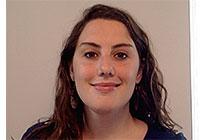Action leading the law − medication abortion pills changing access around the world
Medication abortion pills allow people to safely self-manage an abortion. Even in countries with restrictive abortion laws, pipelines exist so those who need these pills can access them. Dr Sydney Calkin’s research examines how access to these drugs in countries with restrictive abortion laws has affected law and policy.
Dr Calkin’s book on the topic, Abortion Pills Go Global: Reproductive Freedom across Borders, will be published by the University of California Press in October 2023. Her research into this and other areas of self-managed healthcare have led to her being awarded €1.5million in funding from the ERC’s Starting Grant (2022) scheme.
How has access to abortion been managed in different countries?
In her paper Legal and non-legal barriers to abortion in Ireland and the United Kingdom, Dr Calkin assessed the laws governing abortion in Ireland and different parts of the UK. While abortion has long been legal in England, Scotland and Wales and has recently become legal in Ireland and Northern Ireland, the research showed that access to safe, timely abortion was highly variable.
Even when an abortion can be obtained, non-legal factors can serve as a barrier to access. These factors may include a lack of services in rural areas, faltering healthcare systems, a shortage of trained staff and variation around when and how abortions can be obtained.
It is clear that even in countries where abortion is legal and healthcare is free at the point of access, people may struggle to receive the timely care they require.
In countries where the laws are more restrictive, these and other barriers are compounded. Unlike most countries, the US and Poland have recently enacted new, highly restrictive abortion laws. Those seeking abortion face the prospect of arrest and punitive legal action.
People in these and other countries seeking abortion may face stigma from their communities, as well as harassment from anti-abortion activists. Even when it is legal, abortion can be costly, especially if the patient does not have the requisite health insurance coverage. Those seeking abortion can also encounter complex administrative barriers around waiting periods and abortion providers, as well as a lack of confidentiality and obstruction by individual health practitioners.
Access to medication abortion pills
Medical (non-surgical) abortion usually consists of a combination of two drugs: mifepristone followed one to two days later by misoprostol. Even in countries where most abortions are illegal or severely restricted, people can access the pills online or through underground networks. The pills are safe and effective. People who access them do not need to seek other, less safe abortion methods and thus there has been a sharp decline in maternal mortality.
Most abortion pills are manufactured in India and move freely through recognised pharmaceutical channels from there. States around the world have attempted to shut down these flows but have been unable to fully do so.
What impact do medication abortion pills have in different countries?
The USA
In the USA, since Roe vs Wade was struck down, abortion laws vary widely from state to state and frequently change. Many people live in areas where they cannot access safe abortion, or cannot afford it. They are, however, able to source medication abortion tablets via activist groups and online pill retailers.
US authorities try to stop the pills entering the country from India, but frequently do not succeed. Contrary to what one might expect, they do not tend to criminalise those who import or use these pills. Dr Calkin argues that authorities may not pursue large numbers of pill users because they fear a public backlash. Instead, they may largely ignore the extent of self-managed, medicalised abortion.
Poland
In 2020, Poland instituted a near-total abortion ban, even though neighbouring countries mostly have legal abortion and abortion pills can easily move into the country. Activist networks supply pills to people who cannot travel abroad, and some use online pill retailers.
Abortion activists in Poland believe there is no point in lobbying through formal channels, as the law is so draconian. Instead, they rely on changing public perceptions through widespread, clandestine access to safe medicalised abortion.
Polish activist group Abortions without Borders have shown that widespread use of abortion pills, even where it is illegal, can safely supply people with abortions and governments are reluctant to carry out large public crackdowns. Nonetheless, these activists face legal risks, like the Polish activist Justyna Wydrzyńska who was recently convicted of supplying abortion pills to a woman in need.
Ireland
While abortion was long outlawed in Ireland, the pills (entering the country from the early 2000s) offered safe abortion at home and meant fewer people had to leave the country to seek abortion. These changes shifted attitudes to abortion in Ireland. Calkin’s research shows how abortion pills helped to motivate the movement for the repeal of the 8th amendment.
How will these actions affect future laws and policies?
Dr Calkin’s research shows that activists rely on changing perceptions as a route to changing policy and law. Activists are able to show that there is widespread social acceptance of self-managed abortion. Instead of merely lobbying, they are able to evidence years of successful clandestine activity, which can then lead to changes in policy and law.
Dr Calkin’s ERC grant will fund her further research into self-managed sexual and reproductive healthcare. The broader project, running over five years, will consider medication abortion pills, sex hormone therapies for gender transition and pre- and post-exposure prophylaxis for HIV prevention. This will bring together high-quality research into the actions of people whose healthcare needs are unavailable, unaffordable, or stigmatised.
